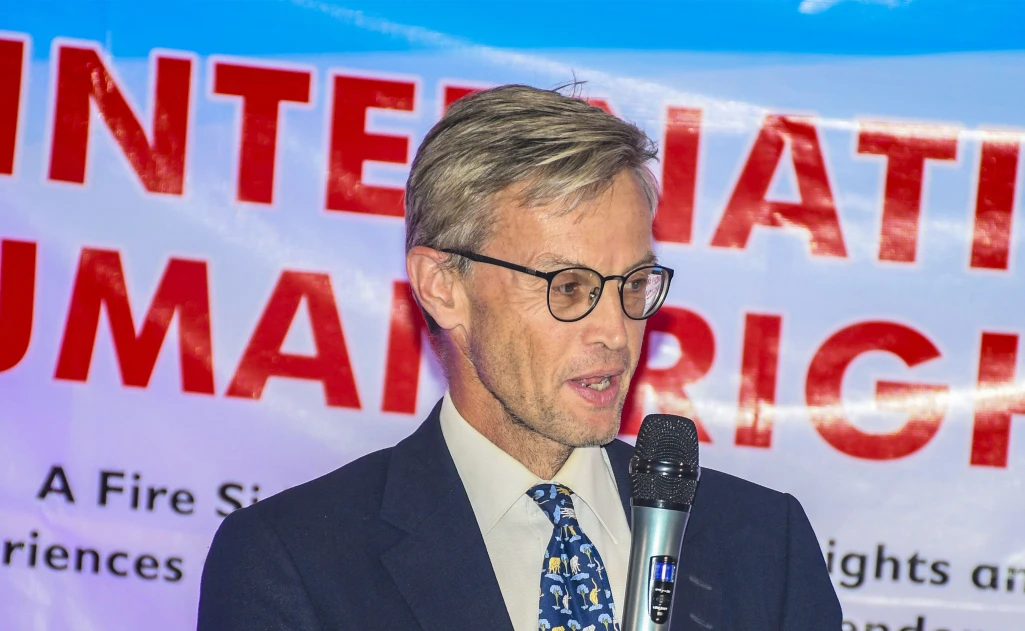
The deputy head of the European Union (EU) in South Sudan has underscored the EU's ongoing efforts to promote dignity, equality, and justice, as well as the need for joint actions to preserve human rights in the country and beyond.
Lothar Laschke said that respecting, protecting, and fulfilling human rights lies at the heart of the EU's policies.
"It is a silver thread that runs through our foreign policy," Laschke addressed at the observance of Human Rights Day in Juba on Tuesday.
Laschke emphasized the importance of never taking human rights and the rule of law for granted.
"Respect for human rights and the rule of law is not a given. They can be turned around overnight. We have seen this happen in history," he said.
In a world facing increasing challenges such as armed conflict, humanitarian crises, and climate disasters, Laschke stressed the importance of daily action to uphold human rights.
"More than before, peace is under much pressure from the force of the guns and the rise of non-democratic regimes," he echoed.
"Peace requires daily work, continuous commitment, and advocating for human rights, equality, non-discrimination, justice, and democracy."
Addressing the practical steps the EU is taking in South Sudan, Laschke explained the EU's support for key initiatives in the country.
"The European Union is supporting the peace process, the implementation of the peace agreement, an enabling environment for holding elections in December 2026, the drafting of a permanent constitution, and transitional justice," he mentioned.
He also highlighted the EU's support for freedom of expression, judicial reform, and socio-economic development.
"We support a free press and media and the protection of journalists, as well as those who defend human rights," Laschke stated.
"We support judicial reform for a more accessible justice system that holds to account perpetrators of human rights violations."
In April, the United States Department of State's Bureau of Democracy, Human Rights, and Labor announced that the human rights situation in South Sudan has remained unchanged compared to 2023.
In a 57-page Country Reports on Human Rights Practices, the agency said significant human rights issues included credible reports of arbitrary or unlawful killings, extrajudicial killings, and enforced disappearance.
“Torture or cruel, inhuman, or degrading treatment or punishment by security forces, opposition forces, armed militias affiliated with the government and the opposition, and ethnically based groups," states the report.
“Harsh and life-threatening prison conditions, arbitrary detention, serious problems with the independence of the judiciary, political prisoners or detainees, transnational repression against individuals in other countries.”
The agency also cited restrictions on freedom of expression.
“Serious restrictions on freedom of expression and media freedom, including violence against journalists, unjustified arrests or prosecutions of journalists, and censorship; serious restrictions on internet freedom; substantial interference with the freedom of peaceful assembly and freedom of association,” it says.
The report criticized the government for not taking credible steps to identify and punish officials who may have committed human rights abuses, despite isolated examples of prosecution for human rights abuses.
It also stressed that widespread oil spills continue to affect the lives of locals.
“Widespread oil spillages and other chemical pollution, exacerbated by sustained, multiyear flooding that damaged oil-producing infrastructure, negatively affected the health of workers and others who lived nearby,” it adds.